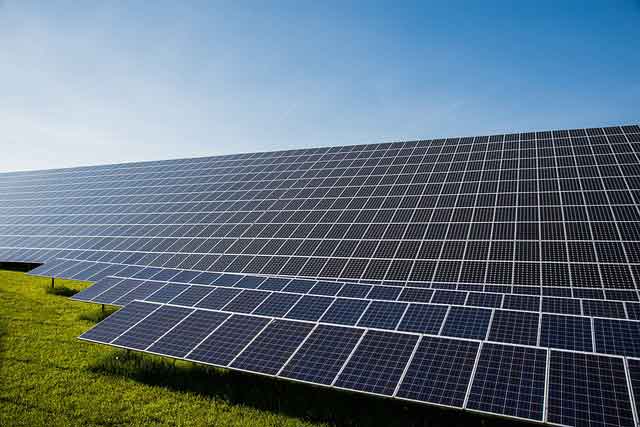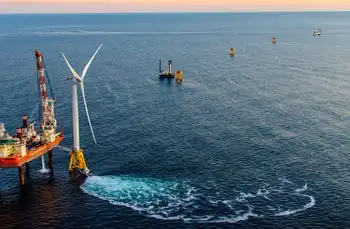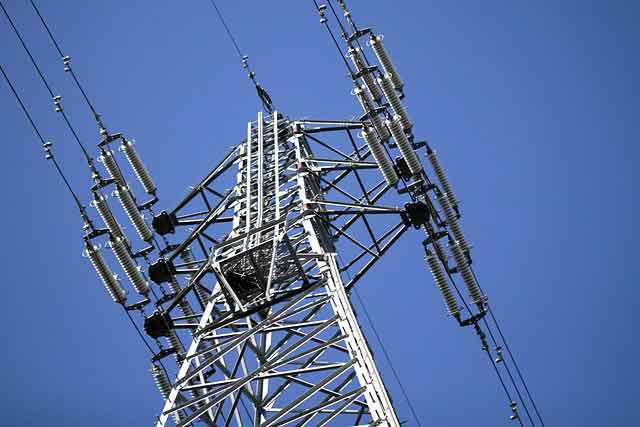Florida utilities avoid melting point
TAMPA BAY, FLORIDA - The summer's stifling heat and humidity have sent demand for electricity soaring in the Tampa Bay area, but utility officials have stayed cool, confident that they can access enough power to keep air conditioners humming.
Still, Tampa Electric Co. and Progress Energy have worked up a sweat supplying enough juice these past few weeks.
There haven't been any brownouts or blackouts, but the two utilities are edging close enough to maximum capacities that plans to boost power generating capacity in the next few years will be timely for a region that continues to grow dramatically.
"There are a lot of areas for growth in our area, and we don't see it slowing down," said Ben Crisp, Progress Energy Inc. director of system planning. "It is a big challenge."
For instance, on July 22 Tampa Electric set a record with 4,175 megawatts, just shy of the Tampa utility's maximum power generating capacity. A few days later, on July 27, St. Petersburg-based Progress Energy Florida Inc., which has a considerably larger service territory than Tampa Electric, recorded a new summer power peak at 9,208 megawatts.
Throughout July, the utilities set and broke several records leading to their peaks. Tampa Electric's all-time peak is about 2 percent more than the record of 4,092 megawatts set 2" years before.
Progress Energy Florida's summer peak is more than 8 percent higher than the 8,519 megawatts customers demanded on June 24 last year.
Combined, the power surge was enough electricity to serve nearly a half-million more homes than the utilities served before.
In years past, such record demand would have raised concerns that the power appetite would out-strip the available electricity. But Tampa Electric and Progress Energy Florida say a larger margin of power kept on reserve throughout the state since last year has kept the Bay area comfortably away from brownouts or blackouts.
"We're really in good shape," said Chuck Black, president of Tampa Electric Co., the main subsidiary of TECO Energy Inc.
Officials at Progress Energy Florida, a subsidiary of Raleigh, N.C.-based Progress Energy Inc., echoed Black's comment. Although 9,208 megawatts of electricity is more than Progress Energy Florida planned to generate at anytime this summer, "we've done a good job," said Eric S. Grant, the company's director of power systems operations.
Statewide, about 50,500 megawatts are available this summer to meet Floridians' demand for power, said Linda Campbell, director of reliability at the Florida Reliability Coordinating Council.
That's 1,900 megawatts more than last summer. To get there, utilities across the state completed new generators, changed old ones to run more efficiently and signed contracts to buy power.
On average, Campbell said, more than 5,000 megawatts of power has been available statewide if any of the utilities needed it this summer. So, despite melting temperatures this summer, there have been no capacity emergencies, Campbell said.
The power cushion was built up after the state's three largest utilities - Tampa Electric, Progress Energy Florida and Florida Power & Light - signed an agreement with the state Public Service Commission after discussions in 1999 to increase reserve margins to 20 percent from 15 percent by 2004, said Kevin Bloom, commission spokesman.
Progress Energy Florida has about 9,900 megawatts available for its 1.5 million customers this summer, Grant said. Tampa Electric has about 4,200 megawatts for its 640,000 customers, said Ross Bannister, a TECO spokesman.
The capacity figures for Progress Energy Florida and Tampa Electric include the amount of power the utilities can generate from their electrical plants, how much electricity they have commitments to purchase and programs that would allow them to briefly shut off power to some customers' appliances to shave the peak demand.
Both utilities said they have not had to resort to interrupting residential customers or purchase expensive megawatts on the spot power market to meet its record peaks.
The higher power demand is being driven by thousands of new customers moving into the territories of Tampa Electric and Progress Energy Florida annually. Each utility sees about a 2.5 percent increase in customers each year. That equates to demand from customers for electricity jumping by about 250 megawatts each year at Progress Energy Florida and about 150 megawatts each year at Tampa Electric.
Tampa Electric is planning to build a new 150 megawatt power station in 2007 and another one sometime in 2008. The natural gas- fired units would be near existing plants at Port Sutton near U.S. 41 or in Polk County. The cost could run as high as $110 million.
Progress Energy Florida plans to spend $2 billion over the next 10 years to add 4,000 megawatts, company spokeswoman Cherie Jacobs said.
The utility has asked the PSC to raise rates by $206 million, with about half to pay for new power units. A hearing is scheduled for September.
Related News

Trump Tariff Threat Delays Quebec's Green Energy Bill
MONTREAL - The Trump administration's tariff threat has had a significant impact on Quebec's energy sector, resulting in the delay of a critical energy bill. Originally introduced to streamline energy development and tackle climate change, the bill was meant to help transition Quebec towards greener alternatives while fostering economic growth. However, the U.S. threat to impose tariffs on Canadian goods, including energy products, introduced a wave of uncertainty that led to a pause in the bill's legislative process.
Quebec’s energy bill had ambitious goals of transitioning to renewable sources like wind, solar, and hydroelectric power. It sought to support investments…




